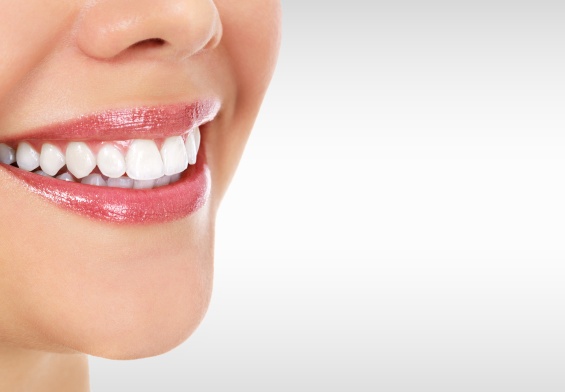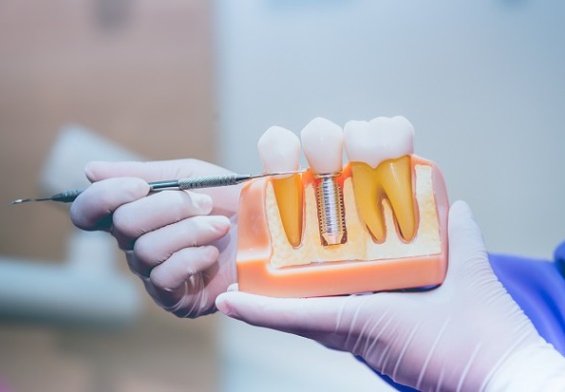Teeth are not quite as unique as snowflakes, however, they do vary in size, shape and location in the jaw. These differences in the teeth are what give our face shape and form and how we chew, speak or smile. Did you know that we are born with 20 baby teeth (a/k/a “primary teeth”) that will begin to “erupt” or break through at about 6 months, and, by age 12, all 32 of our permanent teeth have usually erupted?
A Child’s Smile
There are many gap-toothed photos of you in your parents’ family albums. Face it, all of a sudden your “cuteness quotient” goes down substantially when you begin losing those baby teeth. The first teeth to go are the lower center teeth (a/k/a the lower center incisors) at approximately 6 to 7 years old. Next are the top center pair. It’s scary looking when you resemble a Halloween pumpkin, but, at least the Tooth Fairy helps make this time bearable. Happily, a baby tooth typically doesn’t loosen until the permanent tooth below pushes it up to take its place.
When Do Teeth Start to Age?
As you get older, your teeth shift and you lose bone, which causes your gums to recede. As early as your mid-20s, normal wear and tear causes increasing pressure on your teeth, and the two front lower teeth (a/k/a the lower anterior teeth) will begin a subtle shift and will begin to hit the upper front teeth while you are masticating (the grinding and chewing process used to eat your food) and gradually they will begin to wear away at those teeth. If you are especially hard on your teeth, you may see a worn edge on a front tooth, or one tooth will start to push forward. By the time you are in your 40s and 50s, you will notice a change as you peer in the mirror, as suddenly the top teeth will look “shorter,” and your smile will show more of the bottom teeth.
How to Keep Teeth Young
Once you take a good, long look in the mirror and see what the years have done to your teeth, you might feel pretty miserable, but, you needn’t resign yourself to having a misaligned smile, not to mention potential dental issues, or a forced liquid or soft diet down the road, because the time would be now to consult with a cosmetic dentist in Clearwater. A top cosmetic dentist in Clearwater will be able to restore your smile to a youthful appearance!
What Does a Cosmetic Dentist Do?
Discoloration of the teeth may be remedied simply with a whitening, in-office bleaching process, or you can even buy a do-it-yourself kit to brighten your smile. But, really – there are bigger issues looming for preserving your teeth than just ensuring that your smile is dazzling.
As you age, you may be forced to undergo restoration work for old cavities that have crumbled thus necessitating a crown, or even porcelain veneers which are custom-made shells of tooth-colored materials which are bonded to the front surface of the teeth to mask discolored, damaged or even misshapen teeth which serve to improve the color, shape, size and length of the teeth and enhance your appearance.
Cosmetic dentists not only improve the look of teeth that have begun to wear due to age, but, they can also work to balance out facial features that are affected by the structure of the teeth. For example – you know how you are left-or-right-handed, or, how you always step out with a right foot rather than a left foot? (Yes, you do – think about it.) Well, similarly, most of us favor one side over the other when we chew, and this builds up the musculature on one side of the face over the other, making one half of the face over pronounced. A cosmetic dentist can determine the strong and weak sides of the fence, and make your appearance more aesthetically pleasing by counterbalancing those asymmetries.
Cosmetic Dentistry
Extensive cosmetic dentistry, as detailed above, is not needed by everyone, and, the best way to control aging teeth and their inevitable problems is by being proactive and taking care of your teeth now, like:
- Brushing your teeth thoroughly with an electric toothbrush for maximum effectiveness;
- Brushing at every meal, or at least brushing/flossing your teeth twice daily;
- Stepping up the dental and hygienist visits to twice yearly, or maybe even three times annually, especially if you have a lot of plaque; and
- Being fitted professionally with a night guard or bite plate to save your teeth from bruxism.
You work hard to keep your body in shape and look youthful, so make a special effort to keep your mouth young as well.



